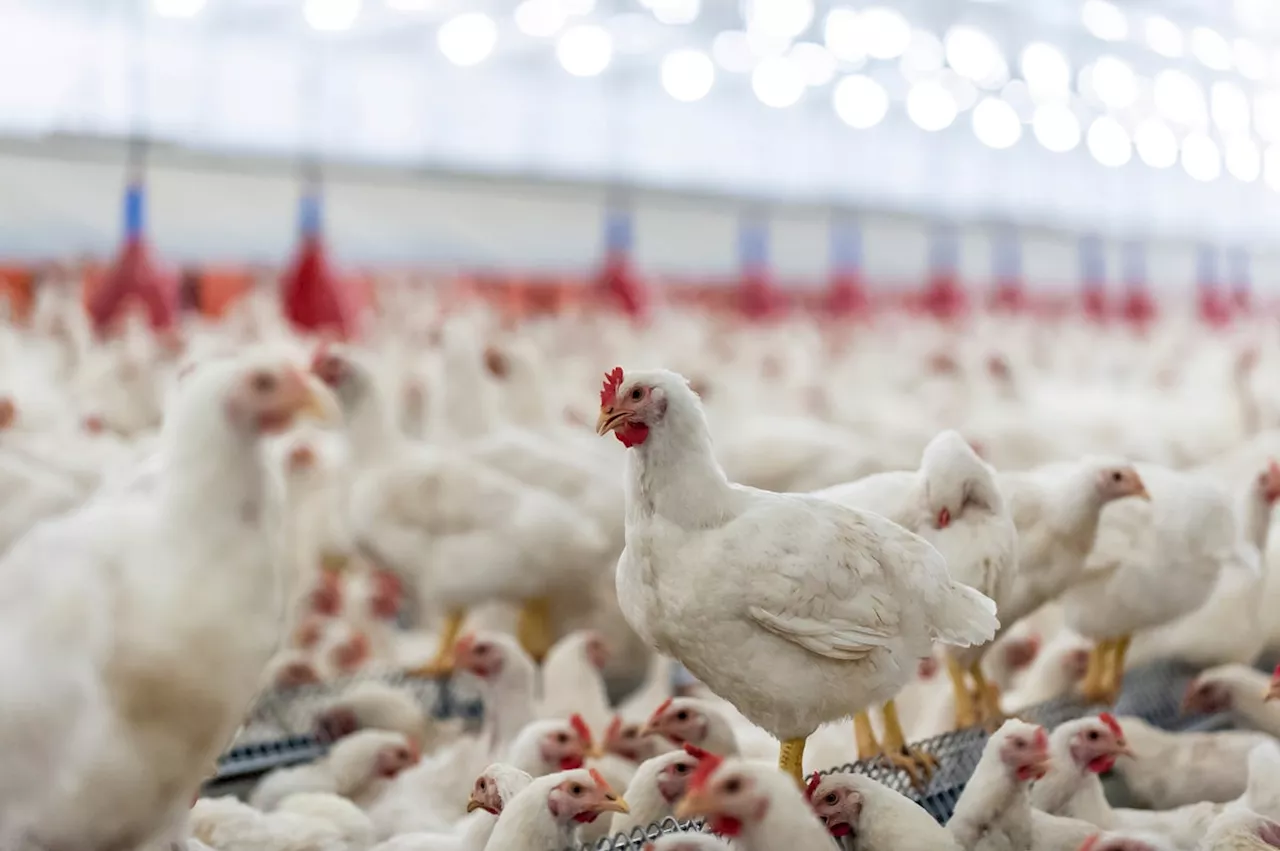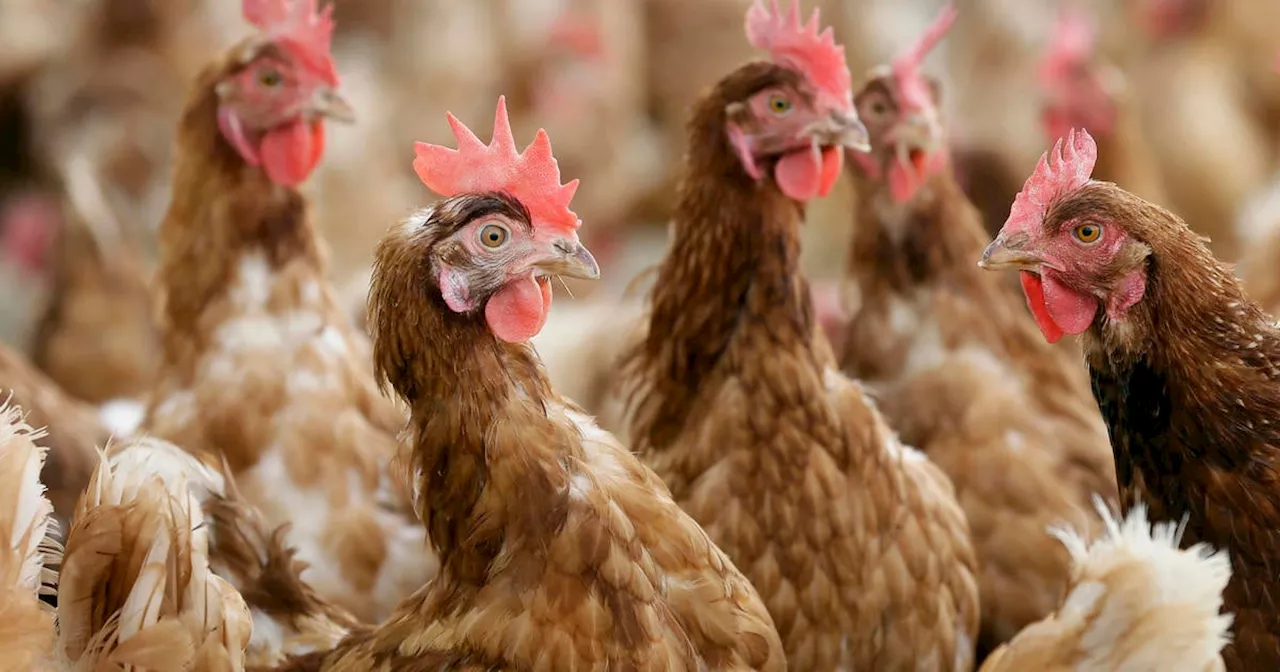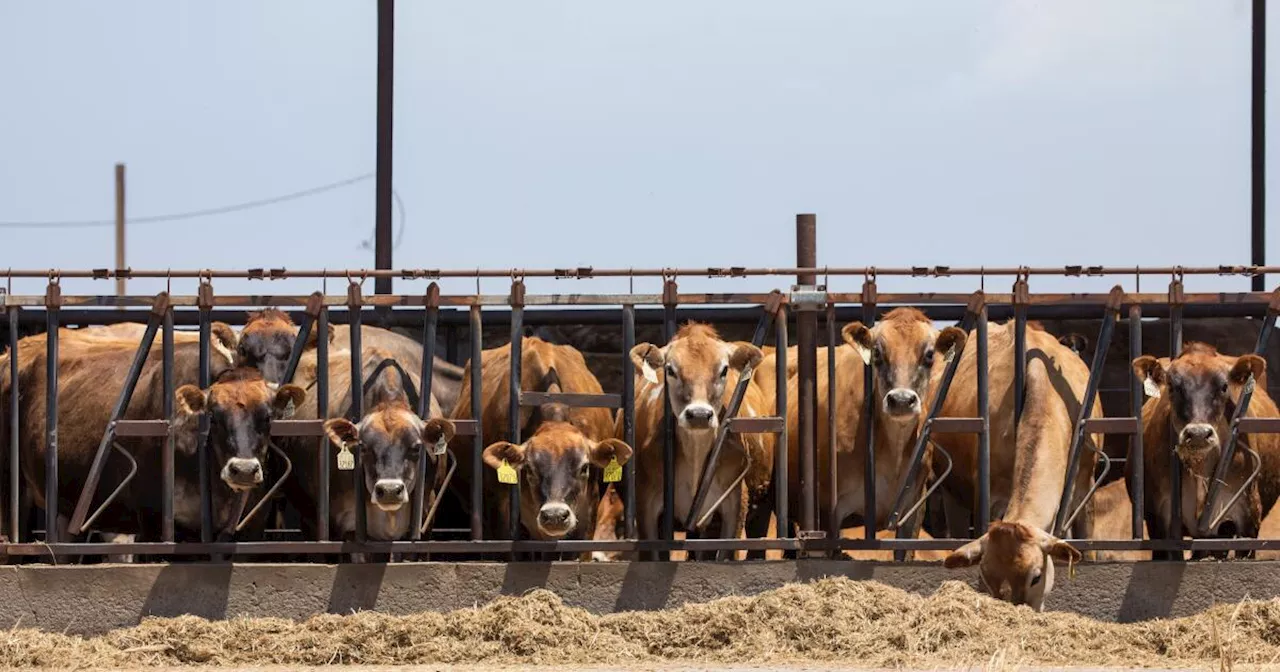A new CDC study reveals that the H5N1 bird flu virus is likely circulating undetected in livestock across the US, potentially infecting veterinarians.
A recent study published by the U.S. Centers for Disease Control and Prevention (CDC) reveals a concerning trend: the H5N1 bird flu virus is likely spreading undetected in livestock across the country, potentially infecting veterinarians without their knowledge. The study, detailed in the CDC's Morbidity and Mortality Weekly Report, involved researchers from the CDC, the Ohio Department of Health , and the American Association of Bovine Practitioners.
They analyzed blood samples from 150 bovine veterinarians across 46 states and Canada, discovering that three individuals tested positive for antibodies against the H5N1 virus. Astonishingly, none of the infected veterinarians reported experiencing any symptoms, including conjunctivitis (pink eye), the most common symptom observed in human cases. Furthermore, none of the affected vets recalled working with cattle or poultry known to be infected with the virus. One veterinarian, for instance, stated they had practiced solely in Georgia (working with dairy cows) and South Carolina (working with poultry) – two states that hadn't reported H5N1 infections in dairy cows at the time.The findings have sparked surprise among experts. Seema Lakdawala, a microbiologist at Emory University in Atlanta who was not involved in the research, expressed astonishment at the relatively low number of positive antibody tests (2%) considering another CDC study indicated a 17% infection rate among dairy workers. She was even more surprised that none of the infected veterinarians were aware of their infection or any contact with infected animals. Lakdawala emphasized the significance of serum surveillance studies in identifying undiagnosed infections. She underscored the crucial role veterinarians play on the front lines of outbreaks and stressed the need for enhanced biosafety practices, such as respiratory and eye protection, to minimize their exposure risk.Jennifer Nuzzo, director of the Pandemic Center at Brown University, characterized the study as a 'good and bad news story.' While acknowledging the concerning evidence of potential undetected H5N1 outbreaks on farms, she found reassurance in the lack of widespread infection among veterinarians, suggesting that there's ample opportunity to prevent further spread to farms and worker illnesses. The study, conducted in September 2024, predated the significant surge in human infections. At the time, only four human cases had been reported, and the virus was believed to be confined to dairy cattle in 14 states. Since then, the situation has evolved dramatically. 68 individuals have been infected, with 40 cases linked to contact with infected dairy cows, and the virus has spread to herds in 16 states. John Korslund, a retired U.S. Department of Agriculture scientist, noted the intriguing but imprecise nature of using antibody detection in veterinarians to gauge cattle incidence. However, he highlighted the critical point that humans are susceptible to subclinical infections and potential reassortment risks, a known concern. Reassortment, the mixing and exchange of genetic material between different influenza viruses, can lead to the creation of novel, more virulent strains. Korslund emphasized the significance of the D1.1 strain, detected in Nevada dairy cattle and a human resident, which is altering the landscape of the outbreak. He suggested that people may be more or less susceptible, and the potential for severity may increase or decrease due to this strain's unique characteristics. Korslund expressed confidence that the D1.1 strain will be discovered in other states, stressing the need for continued investigation into its behavior and transmissibility within and between cattle herds.
H5N1 Bird Flu Livestock Veterinarians CDC Study Reassortment D1.1 Strain
United States Latest News, United States Headlines
Similar News:You can also read news stories similar to this one that we have collected from other news sources.
 H5N1 Bird Flu: Expert Warns of Potential Human-to-Human TransmissionAn infectious disease expert warns that the H5N1 bird flu virus, already widespread in animals, could soon mutate and become transmissible between humans. The expert emphasizes the need for rapid surveillance and reporting of any new cases, as well as coordinated efforts from government agencies to prepare for a potential pandemic.
H5N1 Bird Flu: Expert Warns of Potential Human-to-Human TransmissionAn infectious disease expert warns that the H5N1 bird flu virus, already widespread in animals, could soon mutate and become transmissible between humans. The expert emphasizes the need for rapid surveillance and reporting of any new cases, as well as coordinated efforts from government agencies to prepare for a potential pandemic.
Read more »
 H5N1 Avian Influenza Continues to Spread in the USThe H5N1 avian influenza outbreak continues to affect poultry, dairy cows, and humans in the United States. The article provides an update on the situation as of January 23, 2024, highlighting key points such as the spread among poultry flocks, confirmed human cases, and detections in domestic cats. It also discusses the challenges in monitoring the virus and the different agencies involved in its response.
H5N1 Avian Influenza Continues to Spread in the USThe H5N1 avian influenza outbreak continues to affect poultry, dairy cows, and humans in the United States. The article provides an update on the situation as of January 23, 2024, highlighting key points such as the spread among poultry flocks, confirmed human cases, and detections in domestic cats. It also discusses the challenges in monitoring the virus and the different agencies involved in its response.
Read more »
![]() G.I. Joe: Silent Missions Celebrates Iconic 'Silent Interlude' Issue with New One-ShotsSkybound will release a series of five dialogue-free one-shots inspired by the classic 'Silent Interlude' issue of G.I. Joe.
G.I. Joe: Silent Missions Celebrates Iconic 'Silent Interlude' Issue with New One-ShotsSkybound will release a series of five dialogue-free one-shots inspired by the classic 'Silent Interlude' issue of G.I. Joe.
Read more »
 New York City Halts Live Bird Markets Over Bird Flu FearsNew York state has ordered a temporary shutdown of all live bird markets in New York City and surrounding counties to contain the spread of bird flu. The one-week closure, effective immediately, aims to prevent further transmission of the virus. The markets will need to sell down their inventory, undergo thorough cleaning and disinfection, and remain closed for at least five days before reopening.
New York City Halts Live Bird Markets Over Bird Flu FearsNew York state has ordered a temporary shutdown of all live bird markets in New York City and surrounding counties to contain the spread of bird flu. The one-week closure, effective immediately, aims to prevent further transmission of the virus. The markets will need to sell down their inventory, undergo thorough cleaning and disinfection, and remain closed for at least five days before reopening.
Read more »
 New York Live Bird Markets Ordered to Close for Five Days amid Bird Flu OutbreakSource of breaking news and analysis, insightful commentary and original reporting, curated and written specifically for the new generation of independent and conservative thinkers.
New York Live Bird Markets Ordered to Close for Five Days amid Bird Flu OutbreakSource of breaking news and analysis, insightful commentary and original reporting, curated and written specifically for the new generation of independent and conservative thinkers.
Read more »
 New York City Shuts Down Live-Bird Markets Amid Bird Flu OutbreakNew York state officials are temporarily closing live-bird markets in several counties due to seven detected cases of avian influenza in poultry markets across New York City. Governor Kathy Hochul emphasized that the closure is a precautionary measure to prevent the spread of the virus and that there is no immediate public health threat to humans. State officials are working with market owners to depopulate infected flocks and ensure thorough cleaning and disinfection before reopening.
New York City Shuts Down Live-Bird Markets Amid Bird Flu OutbreakNew York state officials are temporarily closing live-bird markets in several counties due to seven detected cases of avian influenza in poultry markets across New York City. Governor Kathy Hochul emphasized that the closure is a precautionary measure to prevent the spread of the virus and that there is no immediate public health threat to humans. State officials are working with market owners to depopulate infected flocks and ensure thorough cleaning and disinfection before reopening.
Read more »
